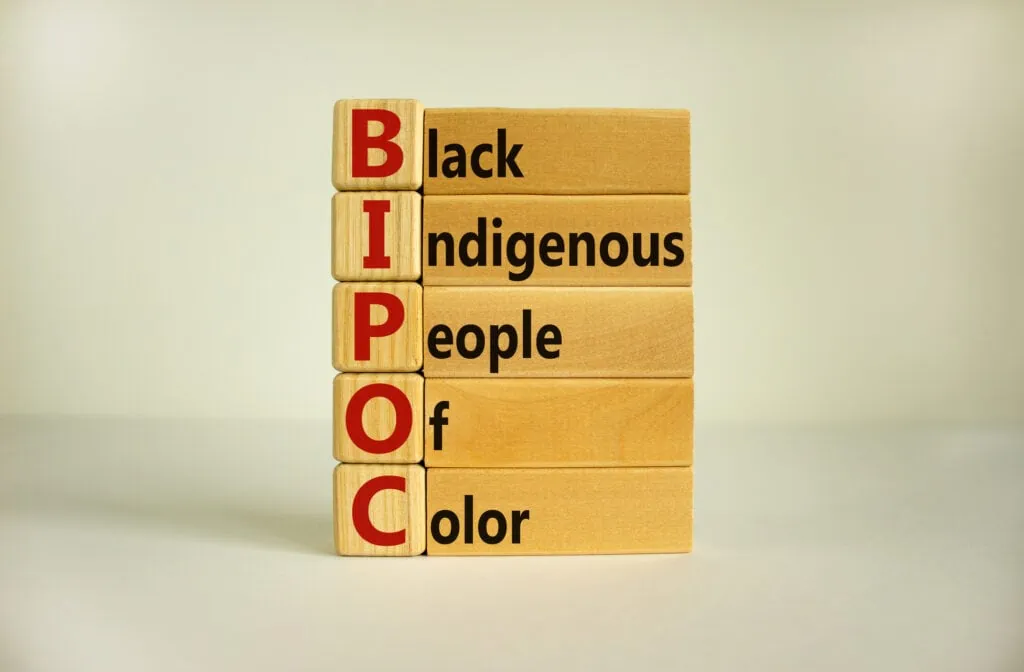July is Minority Mental Health Awareness Month, and an important reminder that, for a variety of reasons, minority communities have less access to mental health services. But even when they do get support services, the preconceived notions and biases of their providers can negatively impact their recovery.
The substance abuse and mental health professions are filled with gracious, patient, kind, and empathic people. Practitioners get into this industry to support others and help them build a better life for themselves and their loved ones.
Despite these best efforts, many practitioners have room for improvement with regards to working with the BIPOC (black, indigenous, person of color) community. Let’s dive into why this is and how we can better support minority communities through humility and cultural competency.
What is Cultural Competency?
Cultural competency is understanding the ways in which culture, race, and identity impact a person’s lived experience, mental health, and relationship to recovery. It also recognises and adapts to how being in a marginalised or minority demographic can create barriers and challenges not faced by the majority. Emerging information about “minority stress” and the real, tangible physical and psychological effects of being part of a marginalised group are only starting to garner research and attention, and it is our job as practitioners to understand this, stay informed, and adjust our approach accordingly.
In the past, many in the helping profession attempted to take a “colorblind” approach to treatment. Attempting to treat people equally is a valid goal, but it can be a flawed approach with regard to BIPOC people. Why? Because it can ignore the important ways that culture, race, ethnicity, and identity can impact the lived experience, and how these factors need to be addressed and adapted to.
Why Humility and Curiosity are the Keys to Cultural Competency
Some practitioners might get defensive regarding cultural competency and the recommendation that they treat the BIPOC community with humility. The implication that someone has to “learn humility” to be culturally competent can almost feel like an attack.
However, the reality is that the traditional substance abuse and mental health system can be less effective for BIPOC and minority groups. Studies have shown that not only are minority groups receiving disproportionately less medical and substance abuse care than their Caucasian counterparts, they’re also receiving higher incarceration rates for the same drug-related crimes. As practitioners, we need to ask ourselves why this is happening, what systemic issues can be addressed, how courses of treatment fail to address the needs of minority groups and be curious as to how we can design programs and treatment to meet these needs.
You Don’t Know What You Don’t Know
One simple way of maintaining empathy, humility, and understanding regarding the barriers faced by the BIPOC community in substance treatment is the mantra, “You don’t know what you don’t know.”
It’s easy to get caught up in our heads as practitioners when it comes to the concept of race. We can strive to be empathic and culturally competent, but there are still many facts of race we can’t understand because we haven’t lived the experience. In the same way that not all practitioners have experienced substance abuse addiction or mental health issues, much of what we know about the lived experience of our clients must come from humility, listening, and recognizing the gaps in our knowledge.
Some roadblocks that practitioners can experience when it comes to race include:
- Not feeling like race should be factored into a treatment course.
- Unconscious assumptions or stereotypes based on race.
- Lack of awareness about (or empathy toward) the financial, cultural, and legal barriers and injustices faced by BIPOC and other marginalised groups.
- Fear of addressing race because of not wanting to say the wrong thing or offend their clients.
- A lack of understanding of intersectionality and how it shapes their clients’ experiences in treatment and outside of it.
Every single person has blind spots in their understanding, and it’s impossible to completely empathise with every single individual experience. But as a practitioner, you can recognise that you don’t know what you don’t know and use that humility to grow as a substance abuse professional, and as a person.
How To Implement Empathy and Humility in Your Work
Beyond the simple mental framework of practicing humility and recognising blind spots, what are some practical ways you, as a substance abuse professional, can work towards cultural competence in your interactions with clients? Here are some ideas to adapt:
ABC – Always Be Curious
Cultural competence and understanding the BIPOC experience are not one-time things. In fact, the conversations around the lived experiences of BIPOC and how things like minority stress and systemic barriers impact the lives of millions of people are still relatively new. New studies are constantly being released and updated, new frameworks introduced, and new ways of understanding are being developed. Cultural competence is a lifelong lesson we will never fully learn.
Ask for Feedback About Blind Spots
Ideally, every practitioner should have a network of people to grow and learn from. Mentors, professional peers, and colleagues can help troubleshoot or understand situations in different ways. If you feel like your understanding of a client’s lived experience is limited, don’t be afraid to open up to a clinical supervisor about the issue (within the boundaries of PIPEDA and HIPAA) or, better yet, ask the person about their experience.
Admit When You Don’t Know Something
Honesty and self-reflection about our shortcomings can be difficult, but it can be a great step towards learning. A big part of humility is admitting (to yourself or others, especially clients) that you need to learn more about a topic and are open and willing to being curious and gaining more knowledge and understanding.
Conclusion
Nobody is perfect. As substance abuse practitioners, we all have areas of growth that we can work on. Having humility and remaining curious can be a great first step towards improving your understanding of the lived BIPOC experience and how it can (and often does) impact treatment outcomes.







